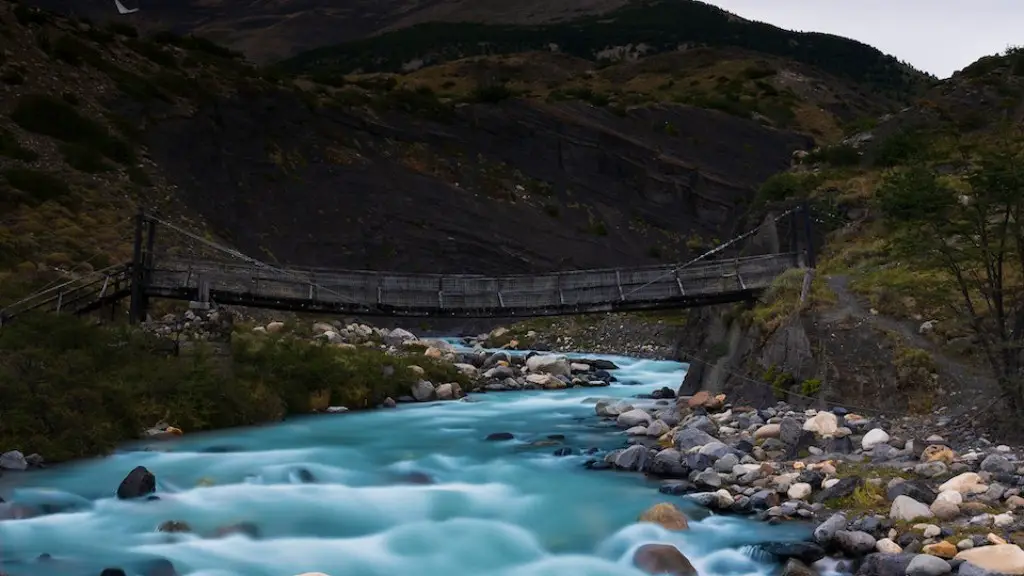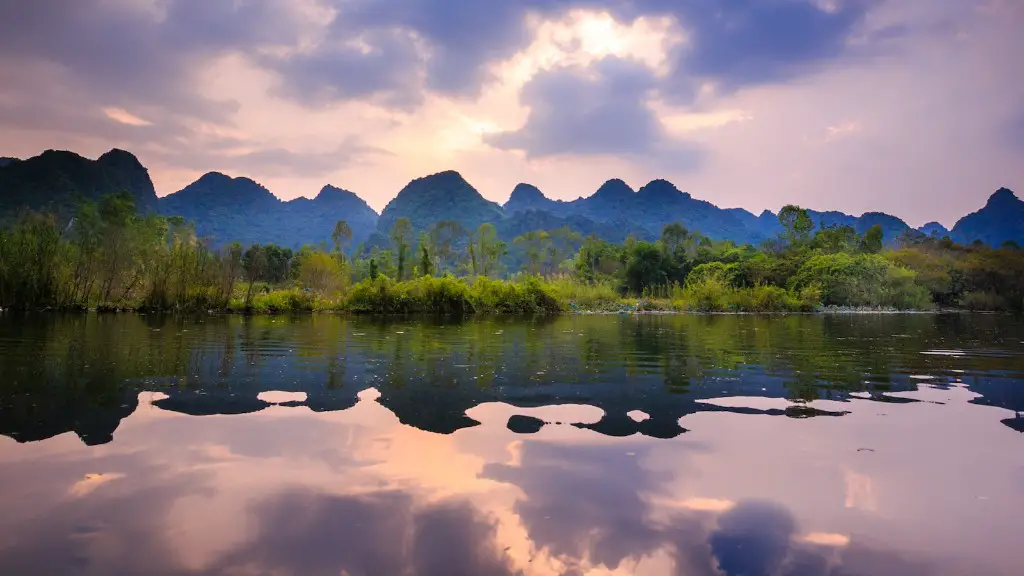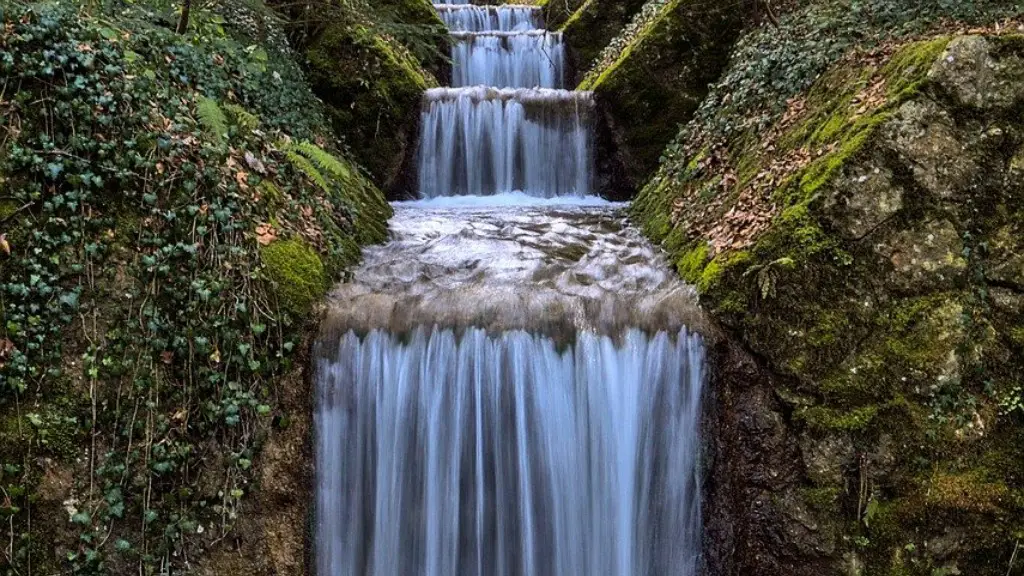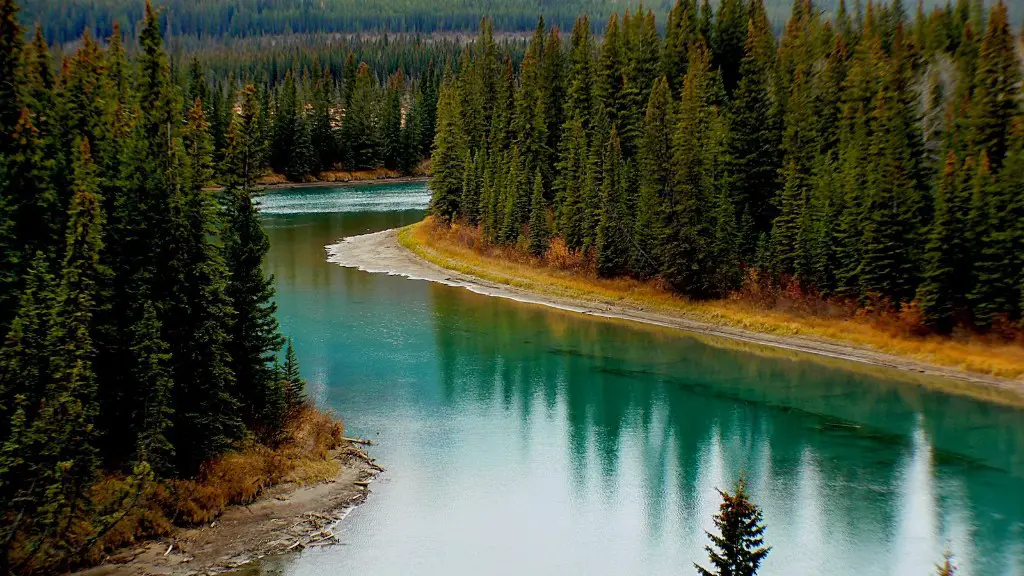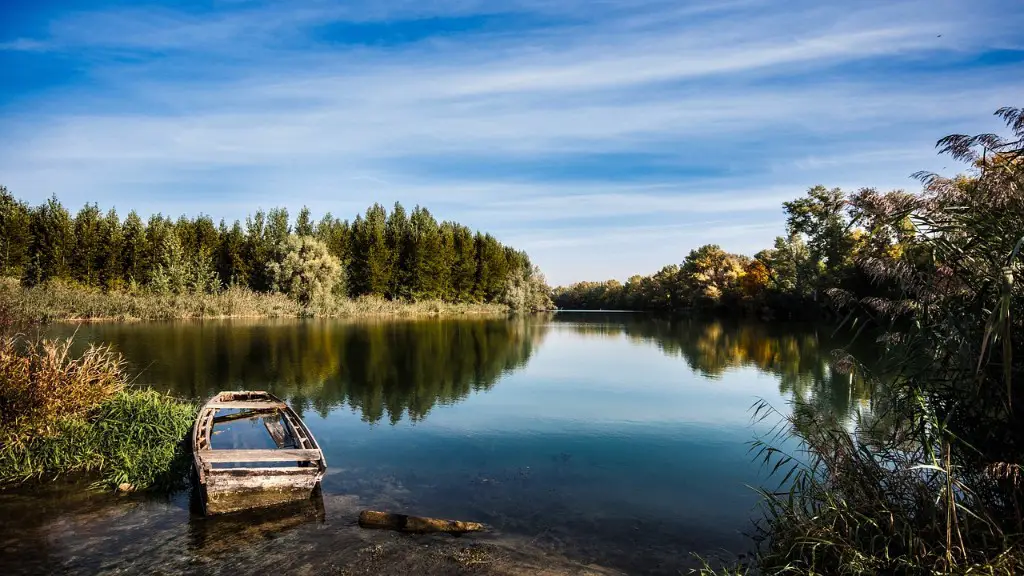Introduction
Humans have had a big impact on the Mississippi River for decades, and this has been recognised by scientists and environmentalists. By changing the structure of its path, engineering its banks, dams, levees and locks, and changing the composition and flow of its water, the Mississippi River has been dramatically modified. This has had both positive and negative effects on the river itself and on the many ecosystems it supports.
Damming
In the 1930s the Mississippi River was dammed at numerous points along its length. This was done in order to regulate its flow and to provide hydroelectric power. The dams helped to create a consistent network of transport and communication between different towns and cities, and they have made the Mississippi a much more navigable river. The dams and locks have also allowed increased shipping and commerce, as well as recreational activities.
But there have been some disadvantages as well. The dams have drastically changed the flow of the Mississippi, which has caused some areas of flooding in parts of the river. This has devastated the habitats of some species, and has put a strain on the fish and wildlife populations.
Urbanisation
Extensive urbanisation of riverside land has greatly impacted the Mississippi and the surrounding areas. The areas along the river have been developed with new roads, highways and buildings, including industrial facilities and other forms of infrastructure. This has helped to drastically increase the amount of pollution in the river, and has also altered the landscapes in which species live.
The Mississippi has also been affected by agricultural runoff and nitrate pollution, resulting in nutrient overload and excessive algal blooms. This has had a huge effect on the health of the river, making it far less suitable for fish and other aquatic life.
Environmental Impact
The effect of humans on the Mississippi River has had a huge environmental impact. In particular, the water quality has been seriously affected by the high levels of pollution and runoff. This in turn has had an effect on the species which live in the river, and has also impacted the wider ecosystems which depend on the river.
The high levels of nutrient pollution have also caused algal blooms, leading to reduced oxygen levels. This further affects the aquatic life, and makes it difficult for species to survive in the river.
Dredging
The Mississippi has also been subject to extensive dredging in order to make it easier for boats and ships to pass through. Dredging is a process by which material is removed from the riverbed in order to make the river deeper. Although this has some benefits, such as making it easier for marine vessels to travel, it also has some drawbacks. For example, the dredging of the Mississippi has disturbed the water and sediment quality, and the disruption of the riverbed can have a negative effect on aquatic habitats.
Conclusion
Humans have had a significant impact on the Mississippi River in recent decades. With its extensive infrastructure, pollution, dredging and damming, the river has been drastically altered from its natural state. This has had both positive and negative effects on the river and its surrounding ecosystems, and there is still much work to be done in order to restore the Mississippi to a healthy state.
The Effects of Pollution
Humans have also had a significant effect on the Mississippi River through increased pollution and nutrient overload. This has led to significant changes in the water quality and has affected the habitats of many species. Among the most severe effects is the disruption of the river bed, which has made it difficult for species to survive and reproduce. The levels of nitrates, phosphorus, and other pollutants have also had a serious impact on the health of the river.
The high levels of nutrient pollution have caused algal blooms, which have drastically increased the oxygen levels of the river. This has had a huge effect on the fish and other aquatic species in the river, as well as on the plants and other organisms in its ecosystems. In addition, the pollutants and other contaminants in the water have led to the death of many fish and other species, as well as to the contamination of groundwater and drinking water sources.
The presence of pollution in the Mississippi River has also had an impact on humans. While most of the effects are felt in the environment, the health of the people who rely on the river for their livelihood, especially those living close to its banks, is also affected by the high levels of pollution.
Impacts on Human Health
The pollution in the Mississippi River also has a direct impact on the health of humans. Pollutants such as heavy metals and pesticides have been linked to an increased risk of cancer and other diseases. In addition, the high levels of nitrates in the river have led to increased cases of algal blooms, which have been linked to a number of adverse health effects, including respiratory and gastrointestinal illnesses. In addition, the presence of bacteria and viruses in the water pose a risk to human health.
The presence of pollutants in the Mississippi River has also been linked to an increased risk of skin and eye irritation. This can occur as a result of contact with the water, or from breathing in air with pollutants in it. Air quality in areas near the river can be compromised due to air pollution from industrial activities, and this can have a direct negative effect on the health of those living nearby.
The pollution in the Mississippi River also has an indirect effect on human health, particularly the health of those who rely on fishing and other water-related activities for their livelihood. As the quality of the river deteriorates, the number of fish and other aquatic species in the river decreases, resulting in lower catch levels and a decrease in income for many fishermen.
The Economics of the River
The Mississippi River is an important economic asset to many cities and towns along its course. The river has long been an important shipping and transportation hub, connecting different parts of the country. In addition, the river has been a significant source of recreational activities, including fishing and boating, as well as tourist attractions. The river is also responsible for much of the agricultural activity in the area, as it provides a source of water for both crops and livestock.
The impact of pollution on the river has had an economic cost. The presence of pollutants has been linked to an increased risk of illness, as well as to a decrease in fish and other aquatic species in the river, resulting in lower catches for fishermen. The high levels of nutrients in the river can also result in algal blooms, which can cause economic losses in the form of damage to property and disruption of economic activities.
In addition, the presence of pollutants in drinking water sources can lead to an increased cost of water purification, as well as an increased risk of illnesses. The presence of pollutants in the river can also lead to decreased recreational activities, resulting in fewer tourists and fewer jobs in the area.
Conservation Efforts
In recent decades, many conservation efforts have been undertaken in order to protect the Mississippi River and the species that live in it. These efforts have included the implementation of pollution control measures, such as nitrogen reduction and water quality monitoring, as well as the removal of pollution sources and the restoration of river habitats. In addition, government agencies and non-profits have also worked to mitigate the effects of pollution by increasing public awareness and education about the importance of conservation.
These efforts have proven to be successful in many instances, with some pollutants being reduced and aquatic species returning to the river in greater numbers. However, with the river being so heavily impacted by humans, much work still needs to be done in order to fully restore the health of the Mississippi and its associated ecosystems.
